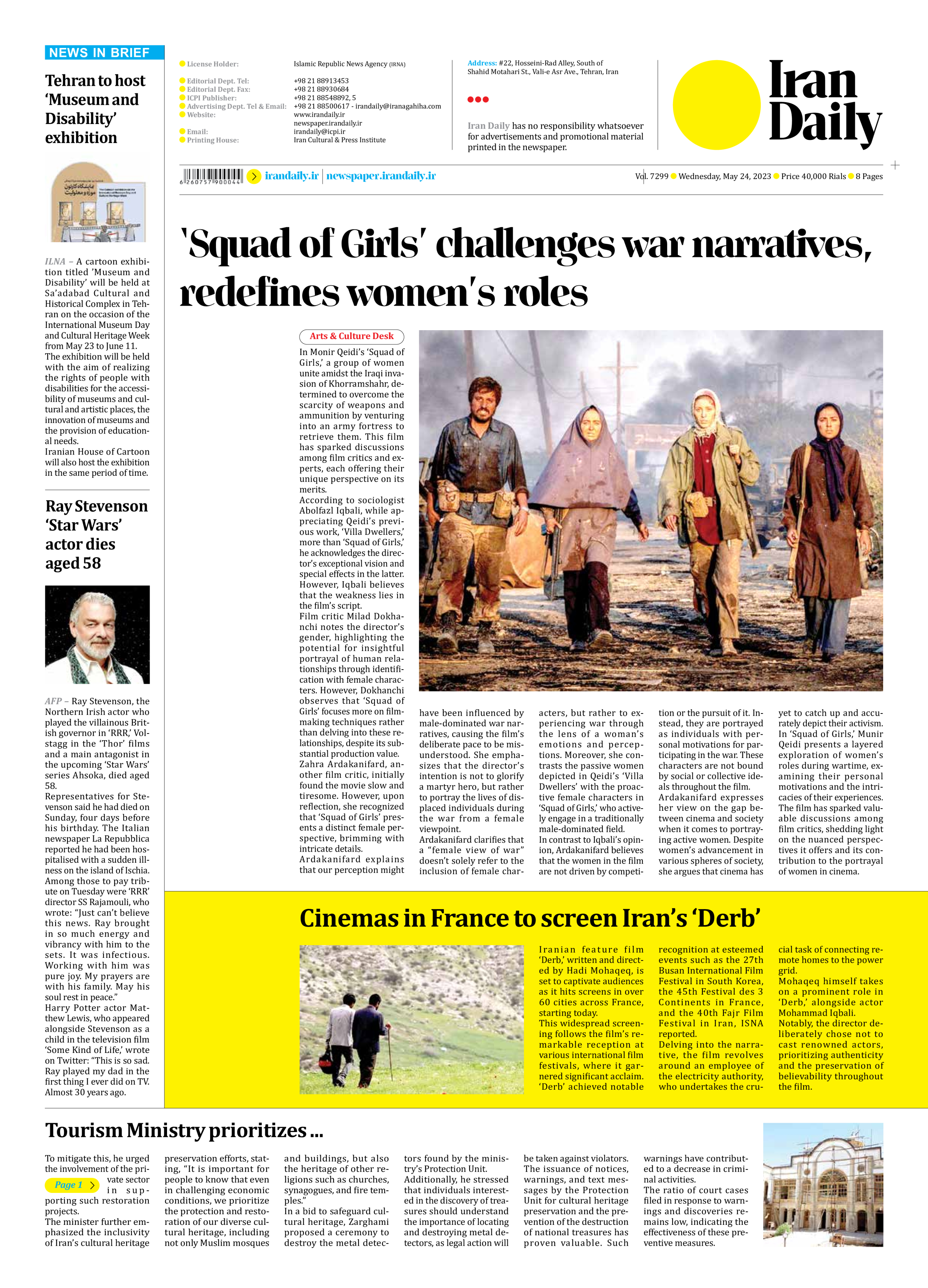
Copy in clipboard...
‘Squad of Girls’ challenges war narratives, redefines women’s roles
According to sociologist Abolfazl Iqbali, while appreciating Qeidi’s previous work, ‘Villa Dwellers,’ more than ‘Squad of Girls,’ he acknowledges the director’s exceptional vision and special effects in the latter. However, Iqbali believes that the weakness lies in the film’s script.
Film critic Milad Dokhanchi notes the director’s gender, highlighting the potential for insightful portrayal of human relationships through identification with female characters. However, Dokhanchi observes that ‘Squad of Girls’ focuses more on filmmaking techniques rather than delving into these relationships, despite its substantial production value.
Zahra Ardakanifard, another film critic, initially found the movie slow and tiresome. However, upon reflection, she recognized that ‘Squad of Girls’ presents a distinct female perspective, brimming with intricate details.
Ardakanifard explains that our perception might have been influenced by male-dominated war narratives, causing the film’s deliberate pace to be misunderstood. She emphasizes that the director’s intention is not to glorify a martyr hero, but rather to portray the lives of displaced individuals during the war from a female viewpoint.
Ardakanifard clarifies that a “female view of war” doesn’t solely refer to the inclusion of female characters, but rather to experiencing war through the lens of a woman’s emotions and perceptions. Moreover, she contrasts the passive women depicted in Qeidi’s ‘Villa Dwellers’ with the proactive female characters in ‘Squad of Girls,’ who actively engage in a traditionally male-dominated field.
In contrast to Iqbali’s opinion, Ardakanifard believes that the women in the film are not driven by competition or the pursuit of it. Instead, they are portrayed as individuals with personal motivations for participating in the war. These characters are not bound by social or collective ideals throughout the film.
Ardakanifard expresses her view on the gap between cinema and society when it comes to portraying active women. Despite women’s advancement in various spheres of society, she argues that cinema has yet to catch up and accurately depict their activism.
In ‘Squad of Girls,’ Munir Qeidi presents a layered exploration of women’s roles during wartime, examining their personal motivations and the intricacies of their experiences. The film has sparked valuable discussions among film critics, shedding light on the nuanced perspectives it offers and its contribution to the portrayal of women in cinema.







